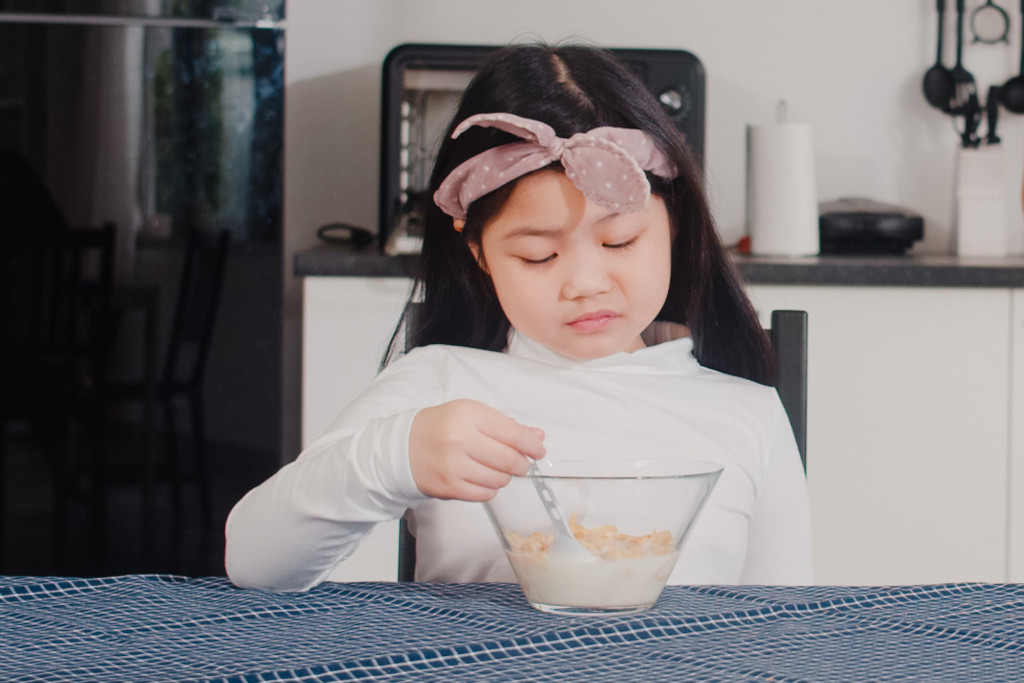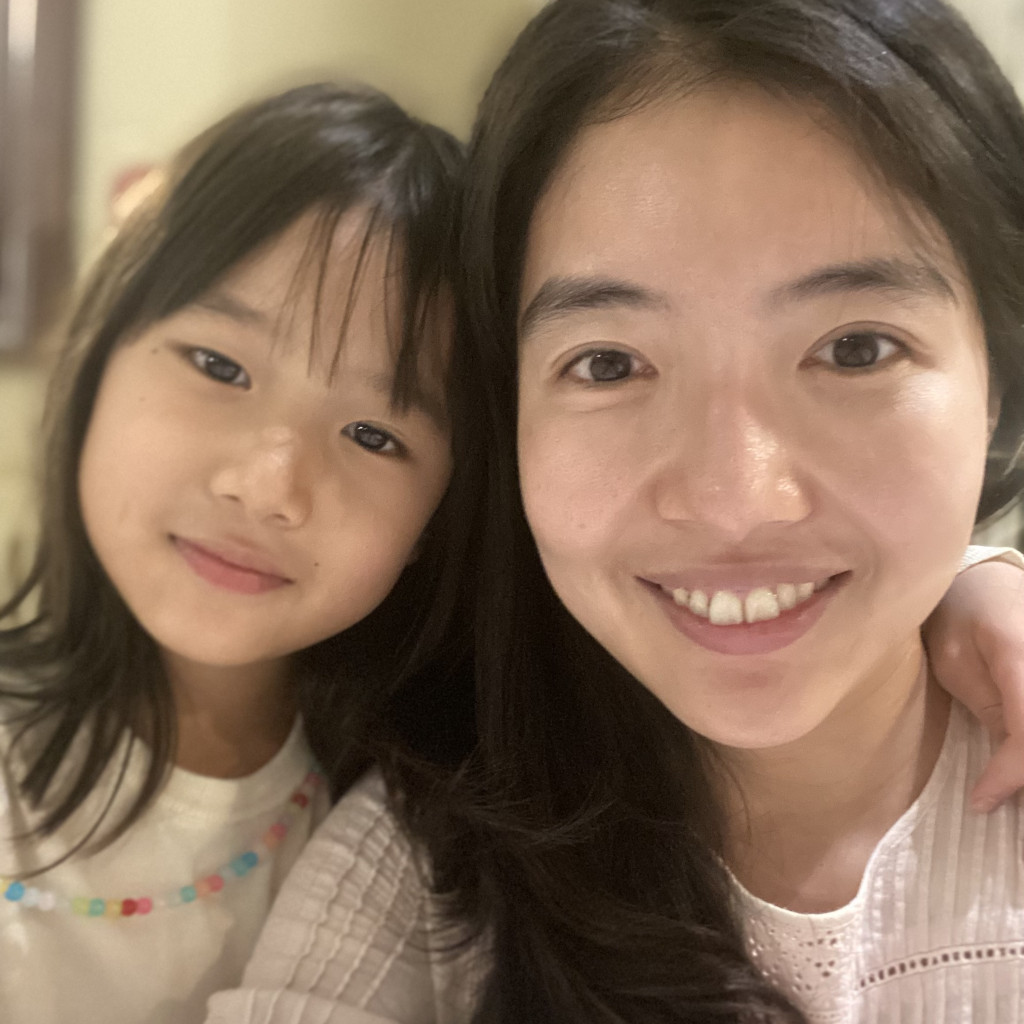SingaporeMotherhood | Parenting
December 2023
Decoding Parent-Child Dynamics: Mummy Evelyn & Daughter Claire

Some parent-child relationships come naturally because your personalities are very similar. But what if you and your child appear to be complete opposites? The foundational principle here is to take time to distil what is really happening at deep-level personality driven instincts. Oftentimes, what we see isn’t always what is going on. This is true not just for parents, but especially so for children, explains developmental psychologist Lydia Lim.
This was the reason she co-founded Connected, a digital resource that helps parents understand, in layman’s terms, the psychology behind the personality traits of their children. With this knowledge, you can then parent your child more effectively and foster stronger communications. It makes it easier for you to spot if your child is in distress, while children are more likely to confide in a parent they feel connected to.
(See also: DECODING PARENT-CHILD DYNAMICS: DADDY KANE & DAUGHTER AVA)
In this series on Decoding Parent-Child Dynamics, we ask parents what personality trait they struggle with most in their child. They also share a little about their parent-child dynamics. Finally, Lydia breaks it down and offers personality-driven insights behind each pair. She explains how the parent-child personalities relate to each other and also curates tips and strategies each parent can incorporate into their parenting journeys.
Mummy Evelyn & Daughter Claire
In this third instalment, we hear from Dr Evelyn Tay, 37-year-old dermatologist and mother of three girls. Her oldest, Claire, is eight years old, while the others are five and two years respectively.

“Claire is an extroverted child and most of her thoughts are verbally expressed. I find this challenging as I am an introvert myself. I am grateful to have a child who will not keep things to herself and is open about her feelings.
However, I do find myself occasionally having to tell Claire to stop singing or keep quiet for a bit just so that I can have a bit of peace and quiet in the car.”
Our Parent-Child Dynamics
“I am the sort who can eat the same meal for months, while Claire needs to have constant variety and excitement in her choice of food.
For example, we currently hang out in Starbucks once a week while Claire’s younger sisters are at an enrichment class. Claire is already showing signs of being bored with this location. So, we will soon need to find a new place for the weekend.”
(See also: 48 KID-FRIENDLY CAFES AND RESTAURANTS IN SINGAPORE)
Personality-driven Insights
Lydia breaks it down: Claire sounds like she’s generally quite assertive by nature and enjoys expressing herself. And not just in conversation, but also through her enjoyment of sound and music — either from external sources or an expression of what’s going on within her. She also appears to wear her heart on her sleeve and may be more inclined to speak her mind freely. Honesty is the best policy, after all!
While Evelyn appreciates the candour that lets Claire openly share about her feelings and experiences, this appreciation may come at a bit of a stretch. She seems rather more reserved and appreciates quieter environments to think, rest, and recharge. Hence, she’s likely to find herself needing pockets of time when ‘silence is golden’.
In addition to her dynamic nature, Claire seems to need variety in life and may also prefer new and novel experiences over what she’s familiar with — this seems especially true regarding food. Perhaps one clear way to Claire’s heart would be through her stomach! Evelyn, in contrast, may prefer the reliable, tried-and-tested choices in life, especially when it comes to food and daily routines that support the family’s schedules and needs.

How The Parent-Child Personalities Relate
Lydia explains further: These personality inclinations, by themselves, are actually not ‘challenging’. Evelyn’s preference for quiet and peaceful moments to recharge are great, and not just for her. They are also opportunities for Claire to learn to stretch beyond herself. It encourages her to understand the value of the occasional quiet space for deeper reflections and rest. In turn, she can grow to learn to give others around her the space they need to recharge, like mummy!
Simultaneously, Claire’s need to decompress through interactive play, candid conversations, sing-a-longs, and such, are open doors for Evelyn to be a part of her life. Her interactive and open nature makes it a lot easier to engage and build strong bonds with her.
However, when two wonderful personality traits come together with very different needs, misunderstandings and frustrations can arise. The deep-level difference between how Claire and Evelyn are inclined to plan weekends, vacations, and even simply to wind down at the end of a long day, can sometimes be less than restful.
(See also: HOW CHILDREN BENEFIT WHEN YOU TRAVEL AS A FAMILY)
Different Day, Different Response
For instance, Evelyn might look forward to quiet moments after a long day at work. But she’s likely to return home to find Claire waiting to tell mummy about every little detail of her day!
When Evelyn attempts to stretch her threshold and extend her depleting energy to be present for Claire, she may find herself increasingly needing to find ways to recharge and recentre herself. For example, as Evelyn mentioned, asking Claire to stop singing or to quieten down for just that short while. This can be a perfectly effective and reasonable request when Claire is having a good day.

But if Claire doesn’t fully understand why she’s been asked to quieten down, she may misunderstand this request. And unfortunately, should it happen on a day when Claire is perhaps more exhausted and urgently needing to decompress — with chatter and singing — it could lead to responses that add tension to the parent-child dynamics.
(See also: SABOTEURS OR SAGES – WHOSE VOICES ARE YOU LISTENING TO?)
Synergy vs Conflict
Separately, with regards to Claire’s innate preference for new and novel experiences in life, her preference for variety rather than the familiar actually means that she’s positioned to really explore what the world offers — the world is her oyster! She’s full of zest and eagerness to explore unfamiliar territories and embrace the unknown. This can be the gateway to her living life to the fullest as she develops through her childhood years.
At the same time, Evelyn’s preference for the tried-and-tested, familiar routines, and fuss-free meal selections are also a good thing. They help build the stable, predictable, and safe environment that anchors children as they grow. These are all hallmarks of family foundations that ensure everyone’s needs are met, schedules are on time, and obligations fulfilled.
Now, when two very different strengths come together, there can be synergy. But there can also be sparks of conflicts, especially when these differences appear on a daily basis. Let’s say Evelyn chooses a familiar and reliable option for the family to manage practical constraints such as tight schedules.
Well, the joy that Claire gains from having variety in her food options at the end of a tiring school day could mean she is likely to experience significant disappointments. This can be equally difficult for Evelyn as she contends with attending to Claire, while needing down time and practical efficiency for herself and the rest of the family.
(See also: DECODING PARENT-CHILD DYNAMICS: MUMMY RACHEL & DAUGHTER OIA)
Curated Tips & Strategies

Lydia shares: Here are a few things Evelyn can consider as she journeys with Claire:
- Have frequent conversations with Claire about the different situations they have experienced where both get frustrated. Addressing the elephant in the room allows mother and daughter to grow a deeper understanding of each other.
- Discuss and negotiate different instances where Claire is able to decompress in ways that most suit her. Do the same to find moments where Evelyn can have her down time. This then also allows Claire to have opportunities to learn to intentionally quieten down to reflect, plan, or even to rest in a more tranquil way.
- Help Claire understand the need for some basic routines, time management structures and simpler food and activity choices — as ways to help her thrive. Discuss how lacking these can result in less than pleasant outcomes that matter to her. For example, late bedtimes may result in grumpiness and less time for new and novel experiences. This helps Claire realise that mummy is really helping her!
- Consider creating the unexpected break from routine once in a while to perk Claire’s day up with a novel experience. This could be on a certain day/time in the week/fortnight/month. Just be careful that Claire doesn’t expect these to happen at a frequency that you are unable to deliver on.
If you relate to Evelyn and Claire’s parent-child dynamics, then consider applying Lydia’s tips and strategies. You can also tap into Connected for more personalised insights on your parenting journey. Otherwise, stay tuned for the next instalment of Decoding Parent-Child Dynamics, where another parent shares their real-life parenting struggles.
All content from this article, including images, cannot be reproduced without credits or written permission from SingaporeMotherhood.
Follow us on Facebook, Instagram, and Telegram for the latest article and promotion updates.





